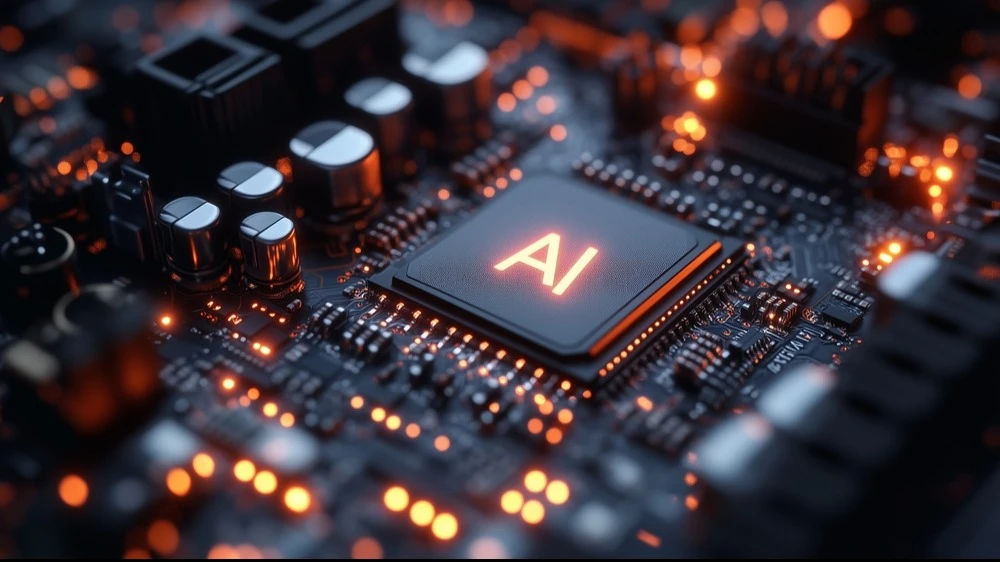Apollo thinks the bubble around AI has surpassed the dotcom boom. Is it time to sound the alarm?
The Nasdaq Composite technology index has consistently outperformed the S&P 500 this year

Apollo Global's chief economist warned that the current rally in U.S. stocks amid the artificial intelligence boom could turn into an even bigger bubble than the dotcoms of the 1990s. The ten largest companies in the S&P 500 are even more expensive now than they were then, he said, with too much concentration of capital and expectations. Nevertheless, other analysts believe that it is too early to talk about the AI bubble, pointing to the real financial performance of companies and the lack of mass IPOs in the AI sector, as it was with Internet companies in the late 90s.
Details
Apollo Global Management chief economist Torsten Slack warned that the current hype around AI could develop into an even bigger bubble than the dotcoms in the late 1990s. "The difference between the IT bubble of the 1990s and the bubble around AI today is that the ten largest companies in the S&P 500 are more overvalued now than they were in the 1990s," Slack noted. While at the peak in the early 2000s, the ten largest companies in the S&P 500 were trading at an expected price-to-earnings ratio of about 25, in recent years that ratio for the top 10 companies has risen to nearly 30, the economist emphasized. According to him, such high concentration and inflated expectations, already embedded in stock prices, resemble and even exceed the mania of the late 1990s, when investors massively bought shares of Internet companies, ignoring their real profitability.
While the economist did not name specific companies, it is the "Magnificent Seven" - Amazon, Alphabet, Microsoft, Meta Platforms, Nvidia, Apple and Tesla - that form the bulk of the index's leaders and remain a key driver of its growth amid the AI boom in recent years, notes Seeking Alpha. Unlike the IT bubble, the current leaders do show strong profitability, but Slack cautions: even strong fundamentals can't justify high multiples indefinitely, adds Investing.com.
The economist's comments came amid an ongoing rally in equities, where AI remains the main driver of growth, Investing.com noted. For example, the Nasdaq Composite Technology Index has consistently outperformed the S&P 500 in 2025, and the hype around AI has led to companies like Nvidia, Microsoft and Meta hitting record valuations. For example, Nvidia recentlybecame the world's first company with a market capitalization above $4 trillion.
What others think
Still, other analysts think it's too early to talk about a bubble, notes Barron's. DataTrek Research co-founder Nicholas Colas admits: yes, stock valuations look high, but there are mitigating factors. He says chip computing power has grown by about 380,000% since 1999 - and that changes the basis for company valuations. In addition, there have been fewer than 20 initial public offerings of generative AI-related companies in 2025, compared with nearly 300 IPOs of Internet companies in 1999 alone. "Unlike the Internet frenzy of the late 1990s, there are really few public companies with clear profit potential in generative AI today," Colas noted in Barron's outline. He also recalled that in 1999-2000, the Fed was raising rates and oil was getting more expensive, whereas now the opposite is true.
Manish Kabra, head of US equity strategy at Société Générale, is of a similar opinion. He believes that to assess the prospects of the current boom it is more important to look not so much at the rate levels themselves, but at their direction. In addition, he calculates that the risk premium for U.S. equities is now 3.3% versus an average of 4.2%. This suggests that investors are confident in the growth of corporate profits and the strength of the economy, the strategist emphasizes. According to Kabra, a real bubble is still a long way off: it will only begin to form if the S&P 500 rises to about 7,500 points, which is more than 20% above current values.
This article was AI-translated and verified by a human editor
